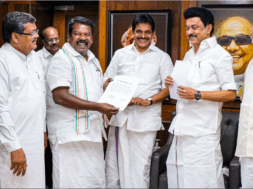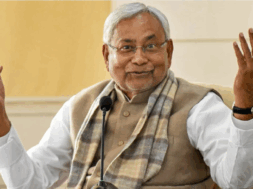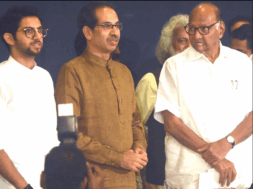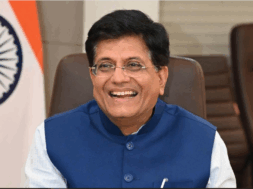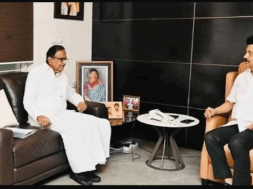
Bangladesh SC Scales down Reservation Quota, but Violence still Unabated
Manas Dasgupta
NEW DELHI, July 21: Amidst an unprecedented students’ unrest in Bangladesh, perhaps the worst ever since the country came into existence in 1971 becoming independent from Pakistan, taking a toll of at least 133 lives so far, its Supreme Court on Sunday brought down the reservation quota from 56 per cent to seven in the government jobs with an advisory to the violent protesters to shun violence and return to the class rooms.
It is unclear whether the violence will subside with the Supreme Court’s decision as a section of the protesters are now demanding scrapping of the five per cent reservation for the children of those who participated in the liberation war against Pakistan 53 years back, with another section maintaining that nothing short of resignation by the Sheikh Hasina government in Dhaka would satisfy the protesters.
The Bangladesh Supreme Court Appellate Division dismissed a lower court order that had reinstated the quotas, directing that 93% of government jobs will be open to candidates on merit, without quotas. Prime Minister Sheikh Hasina’s government had scrapped the quota system in 2018, but the lower court reinstated it last month, sparking the protests and an ensuring government crackdown.
What began as a protest against politicised admission quotas for sought-after government jobs snowballed this week into some of the worst unrest of the 76-year old Ms Sheikh Hasina’s tenure who is ruling over Bangladesh since 2009 and has just won another term in January this year in the absence of an effective opposition.
Soldiers are patrolling cities across Bangladesh after riot police failed to restore order, while a nationwide internet blackout since Thursday has drastically restricted the flow of information to the outside world.
The Supreme Court was due to decide next month on the legality of the recently reintroduced scheme that reserves more than half of government jobs for select applicants, but brought forward its verdict as the civil strife intensified.
It decided that a lower bench’s order last month to reintroduce the scheme was “illegal”, Bangladeshi Attorney General A.M. Amin said. Shah Monjurul Hoque, a lawyer involved in the case, said the court had also asked protesting students “to return to class” after issuing its verdict.
The ruling curtailed the number of reserved jobs, from 56 percent of all positions to seven percent, but fell short of meeting protester demands. It reserved five percent of all government jobs for the children of “freedom fighters” from Bangladesh’s 1971 liberation war against Pakistan, down from 30 percent.
One percent were reserved for tribal communities, and another one percent for people with disabilities or identifying as third gender under Bangladeshi law. The remaining 93 percent of positions would be decided on merit, the court ruled.
The “freedom fighter” category in particular was a point of resentment for young graduates, with critics saying it was only used to stack public jobs with loyalists to Hasina’s ruling Awami League. Students had called for the complete abolition of that category, along with other quotas for women and specific districts of the country.
Opponents accuse Hasina’s government of bending the judiciary to its will, and the premier had already hinted to the public this week that the court would issue a ruling favourable to student demands. Her government is accused by rights groups of misusing state institutions to entrench its hold on power and stamp out dissent, including by the extrajudicial killing of opposition activists.
With Bangladesh unable to provide adequate employment opportunities for its 170 million people, the quota scheme was a pronounced source of resentment among young graduates facing an acute jobs crisis.
Hasina inflamed tensions this month by likening protesters with “Razakars,” a term historically loaded and carrying a negative connotation harking back to the East Pakistani volunteer force who had collaborated with Pakistan and opposed the creation of Bangladesh as a sovereign nation during its 1971 War of Independence.
Comprised primarily of pro-Pakistani Bengalis and Urdu-speaking Biharis, the “Razakars” were involved in numerous atrocities, including mass killings, rapes, and torture. The 1971 war saw immense suffering, with estimates of civilian deaths ranging from 300,000 to 3 million. The scars of these events are still evident in the national psyche.
In 2010, Prime Minister Hasina’s government had established the International Crimes Tribunal to prosecute those accused of war crimes during the 1971 conflict. This move was part of her strategy to address historical injustices and was widely seen as a fulfilment of her party’s electoral promises. The tribunal has since convicted several individuals, predominantly from the now-banned Jamaat-e-Islami party.
In December 2019, the government published a list of 10,789 individuals identified as “Razakars”, marking the first official recognition of these collaborators. This list included prominent figures and was intended to ensure that future generations understand the historical context of their actions.
Sheikh Hasina had been due to leave the country on Sunday for a diplomatic tour to Spain and Brazil but abandoned her plans after a week of escalating violence.
Since Tuesday at least 133 people, including several police officers, have been killed in clashes around the country, according to reports by police and hospitals. The protests, which began late last month, reached a boiling point earlier this week when student activists at Dhaka University, the largest university in the country, engaged in violent clashes with police and counter-protesters aligned with the ruling Awami League.
The current protests are rooted in the quota system for government jobs, which allocates significant portions to descendants of freedom fighters. This system, established in 1972 and abolished briefly in 2018 before being reinstated, has been a source of contention. Critics argue that it disproportionately benefits Awami League supporters and limits opportunities for other qualified candidates.
Student protests against the quota system have a history in Bangladesh. The latest wave began after the decision to reinstate the system, which was followed by the Supreme Court suspending the order pending a government appeal. This legal limbo has left many students frustrated, feeling that their demands for a merit-based system are being ignored.
The students’ grievances extend beyond the quota system. High youth unemployment and a stagnant economy have all contributed to a sense of frustration and despair. Public sector jobs, with their regular wages and benefits, are highly coveted in a country where economic opportunities are limited.

